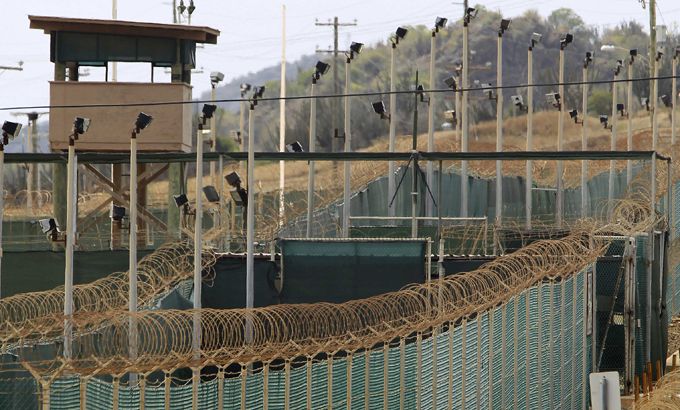
The failing state of Guantanamo Bay
Amid reports of hunger strikes and deteriorating conditions, we examine why the US has given up on closing the facility.
Attorneys representing detainees at Guantanamo Bay prison say most of their clients are on hunger strike as a result of deteriorating conditions at the camp.
|
“I think we need to understand what we mean when we talk about closure, we don’t mean transfer or prosecute which is what many of the critics of Guantanamo would like to see happen. When the US government talks about closing Guantanamo, they talk about moving some set of detainees to some other place where they continue to be detained without charge.” – Jennifer Daskal, an adjunct professor at Georgetown University Law Center |
They say the protest has entered its fourth week and there are reports that some men are coughing up blood and losing consciousness.
But a public affairs official at the detention facility denies the reports. In an email to Al Jazeera wrote that of the 166 prisoners seven are currently on hunger strike and that all inmates are closely monitored for health, food and water intake.
Four years ago, Barack Obama, the US president, vowed to close down the facility. But the issue of what should be done with Guantanamo has since disappeared from the radar.
Meanwhile, some human rights attorneys say the situation has actually worsened since Obama became president.
But American public opinion reveals another view: An ABC News and Washington Post poll says that during the 2012 campaign it showed that more than two-thirds of people favour keeping Guantanamo Bay open while only 24 percent think that it should be closed.
To discuss the future of Guantanamo Bay, Inside Story Americas, with presenter Shihab Rattansi, speaks to guests: Morris Davis, a retired US Air Force Colonel and the former chief prosecutor at Guantanamo Bay; Jennifer Daskal, currently an adjunct professor at Georgetown University Law Center, who has also served as a lawyer at the National Security Division of the US department of justice; and David Remes, one of the attorneys representing Guantanamo detainees. He returned from Guantanamo last week.
| “There is a rule book for Guantanamo but it seems to get reinterpreted every time there is a new rotation of guards that come in …. There is a lot of world attention on it so you would think that we would want to be on our best behaviour, put our best foot forward, so I just don’t see the incentive for trying to be more harsh rather than more compassionate.”
– Morris Davis, a former chief prosecutor at Guantanamo Bay |